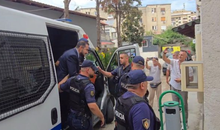
28 arrested in the 'Ndrangheta network, Albanians were the "head" of drug trafficking at the ports

A joint operation between EUROPOL , Italian and Albanian authorities has led to the arrest of 28 members of the notorious 'Ndrangheta criminal network. The operation took place in Italy, Spain and Albania, and among the detainees are also persons of Albanian nationality.
Among those detained is an Italian citizen from the Calabria region suspected of setting up a criminal structure for the cocaine trade in the San Basilio area of Rome.
This individual, along with his three sons, are suspected of working closely with an Albanian criminal group that handled some of the logistical aspects of the drug trafficking trade. Albanian members of this network are suspected of organizing the extraction of shipments from various Spanish and Dutch ports, as well as the subsequent transport to Italy. In addition, they were responsible for the sale of drugs in other parts of Rome.
Investigations show that the cocaine sold in Italy was purchased in South America and transported in containers to ports across Europe. The transport from the port of Gioia Tauro in Calabria to Rome was allegedly facilitated by Calabrian criminal intermediaries.
Torture as a tool to instill fear within the criminal organization
The arrested individuals are suspected of trafficking at least 1,019 kilograms of cocaine and 1,497 kilograms of hashish in 80 trafficking operations. Prosecutors suspect that four Italian individuals kidnapped a drug trafficker, causing him physical and psychological harm - an example of severe violence linked to the 'Ndrangheta criminal organization. The torture was filmed on a mobile phone, with the video then being circulated with the aim of instilling fear, silence and submission in members of the Rome-based criminal group.
This complex investigation also revealed the sophisticated communication methods used to exchange information within the criminal organization. To avoid detection by authorities, its members relied on encrypted messages via devices distributed by an Albanian criminal service provider, who was also arrested on July 8.
Latest news







Edi Rama's summer Delirium
2025-07-09 13:05:42
Wanted by Italy, drug trafficker arrested in Durrës (NAME)
2025-07-09 12:50:13
European Parliament adopts report on Albania
2025-07-09 12:44:25
NAME/ Elderly man found dead in Devoll River, investigation leads
2025-07-09 12:24:47
Taxes warn of on-site inspection for invoice sales of agricultural products
2025-07-09 12:20:59
Climate change tripled heat-related deaths in Europe
2025-07-09 12:10:28
From the ground to paper, Rama announces new reform for "untouched lands"
2025-07-09 11:58:17
The 44th attempt to create a new Assembly for Kosovo also fails
2025-07-09 11:45:22
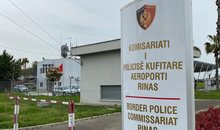
The head of the Rinas police station is reconfirmed in office
2025-07-09 11:25:03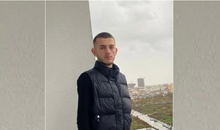


Found dead in Shkopet Lake, 23-year-old has injuries to his throat
2025-07-09 10:41:39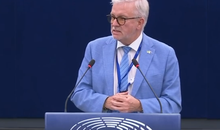


Hoxha: We will have a parliament that will surpass any comedy program!
2025-07-09 10:10:32

Directors targeted! After Fier and Durrës, Rama arrives in Elbasan
2025-07-09 09:53:57
Name/Identification of the 23-year-old found dead near Shkopet Lake
2025-07-09 09:42:34
IKM action in Theth, residents come out in protest
2025-07-09 09:34:54
Reasons why the EU has not imposed new sanctions against Russia
2025-07-09 09:18:35
DW: Online scams increase human trafficking
2025-07-09 09:01:29

Reported missing by his father, 23-year-old found dead near Shkopet lake
2025-07-09 08:42:13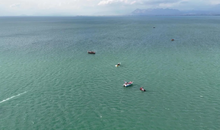

Horoscope, what do the stars have in store for you today?
2025-07-09 08:25:44
Sun and rain, Wednesday with unstable weather
2025-07-09 08:06:58
Posta e mëngjesit/ Me 2 rreshta: Çfarë pati rëndësi dje në Shqipëri
2025-07-09 07:52:02

Tabaku: Salianji bore a political cost that no one in Albania has borne
2025-07-08 22:36:15


Sekretet për të shijuar verën si një ‘profesionist’
2025-07-08 21:45:06


Albania's Waste Crisis: Toxic Smoke and Deep Governance Problems
2025-07-08 21:13:07
Alarming pollution in Fushë-Arrëz, copper factory waste turns the Fan River red
2025-07-08 21:07:14

Poll/ How do you assess the Prime Minister's intervention in local government?
2025-07-08 20:40:01
28 arrested in Italy and Spain for drug trafficking, including an Albanian
2025-07-08 20:24:14
Residents clash with police in Theth: We are on our land
2025-07-08 20:11:41
Death of 27-year-old in Lipjan, Osmani: To be investigated independently!
2025-07-08 20:06:52
Trump promises US will send more weapons to Ukraine
2025-07-08 19:54:25

EU targets health, education, police and cadastre as areas of corruption
2025-07-08 19:23:34




Salianji after his return: I did not oppose for functions, but for vocation
2025-07-08 18:23:15
Will he run in the 2029 elections? Here's how Salianji answers
2025-07-08 18:16:09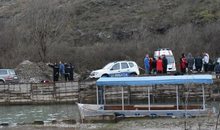
Boat captain drowns after diving into water to save two tourists in Shkodra
2025-07-08 18:05:12
Salianji from the DP headquarters: I brought a drug trafficker to justice
2025-07-08 18:03:26
After Fier, Rama "landes" in Durrës, dismissals expected
2025-07-08 17:53:32
Ervin Salianji arrives at the blue headquarters, welcomed by supporters
2025-07-08 17:45:12
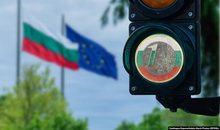
EU approves final steps for Bulgaria's Eurozone membership
2025-07-08 17:43:06

Zhupa after Salianj's release: Inspiration for every opposition member
2025-07-08 17:19:39
Actor David Killick passes away
2025-07-08 17:09:23



Threatened with dismissals, Rama arrives at the Fier municipality
2025-07-08 16:39:19
Extreme temperatures temporarily close Acropolis in Greece
2025-07-08 16:30:34

A plot of cannabis is discovered in Mazha, Kruja
2025-07-08 16:13:48

Republika Srpska allocates additional 22 million euros for lobbying in the US
2025-07-08 15:52:04

Spices that protect you from mosquitoes!
2025-07-08 15:30:03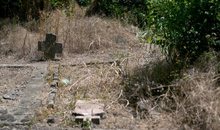

Accident on the Vlora-Qeparo axis, one injured
2025-07-08 15:11:52
Berat, 17 years part of UNESCO's world heritage
2025-07-08 15:03:30
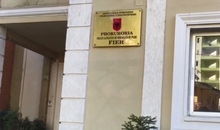

Cost of living increases, inflation rises to 2.4% in June, driven by food
2025-07-08 14:29:54
VIDEO/ Restaurant roof collapses in Italy, one victim and ten injured
2025-07-08 14:18:44
Requested release from cell, Supreme Court leaves Veliaj in prison
2025-07-08 14:07:41
TikTok shutdown/ Austrian media: Rama benefited politically from the app ban
2025-07-08 13:48:25
Acropolis temporarily closed due to heat
2025-07-08 13:31:09



Salianj's release/Berisha: He was politically condemned by Rama and Xhafa!
2025-07-08 13:00:13

Knife attack on Peshkopia Boulevard
2025-07-08 12:44:10


Fier Court decides on the conditional release of Ervin Salianj
2025-07-08 12:15:23
Cost of living increases, inflation rises to 2.4% in June due to food
2025-07-08 12:00:16

